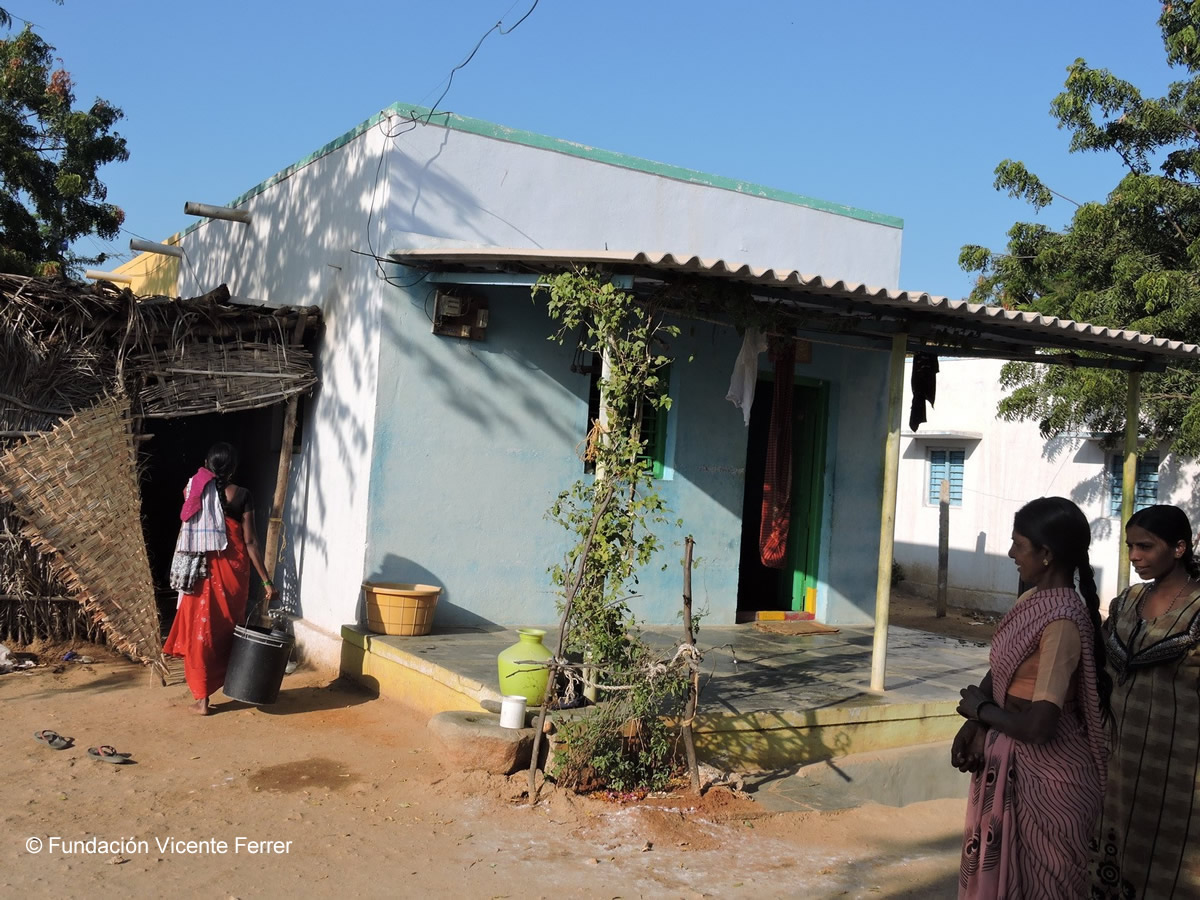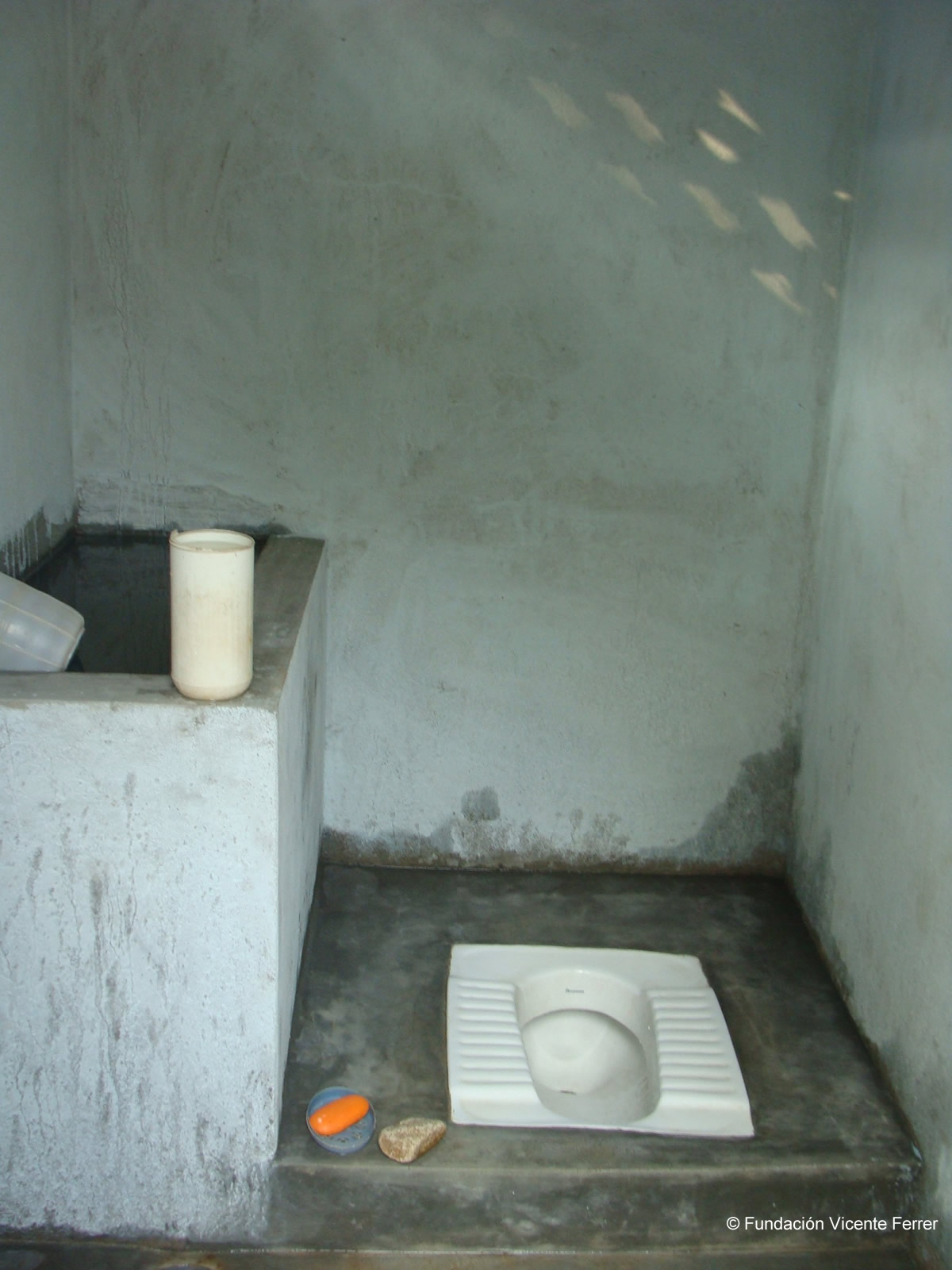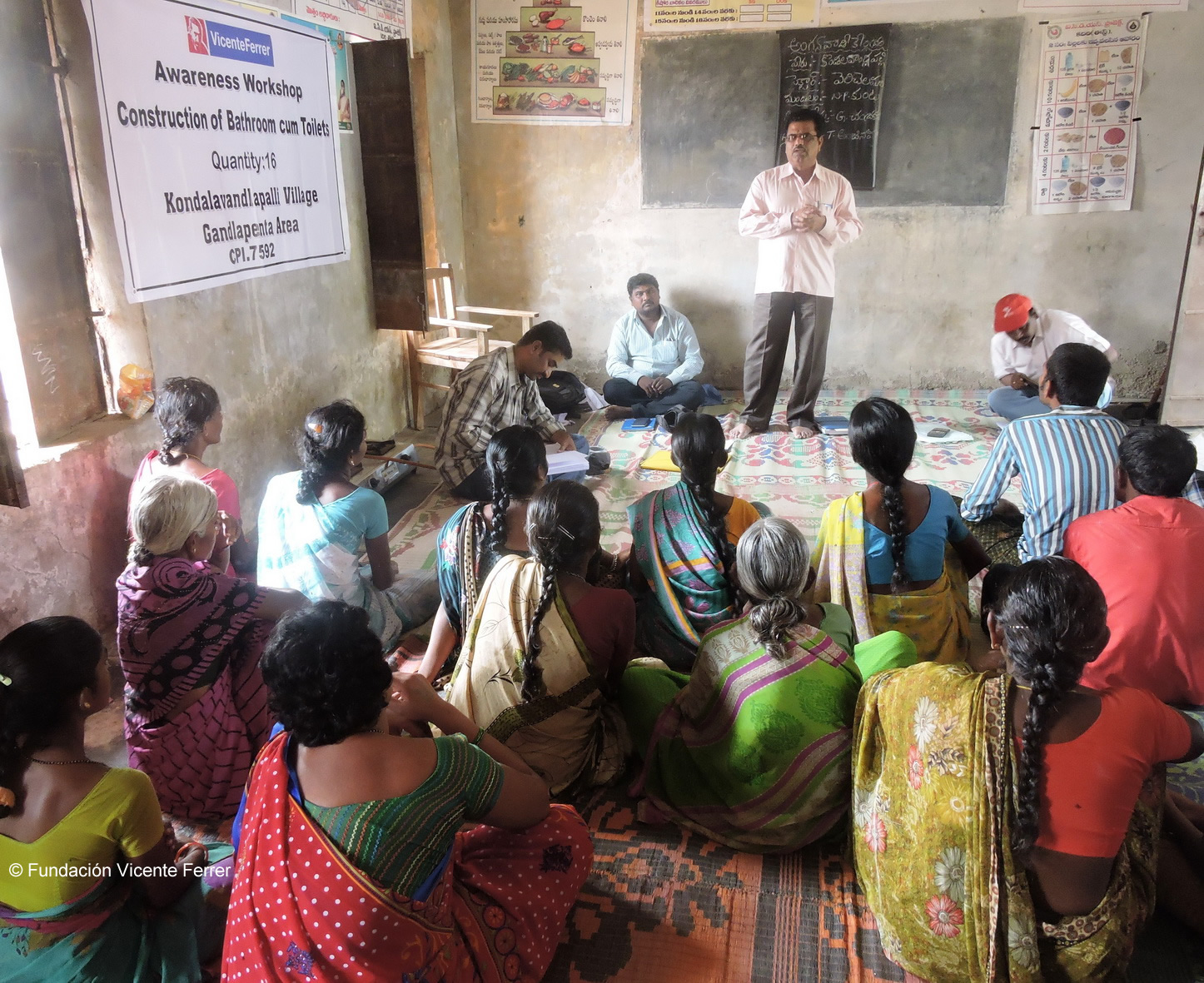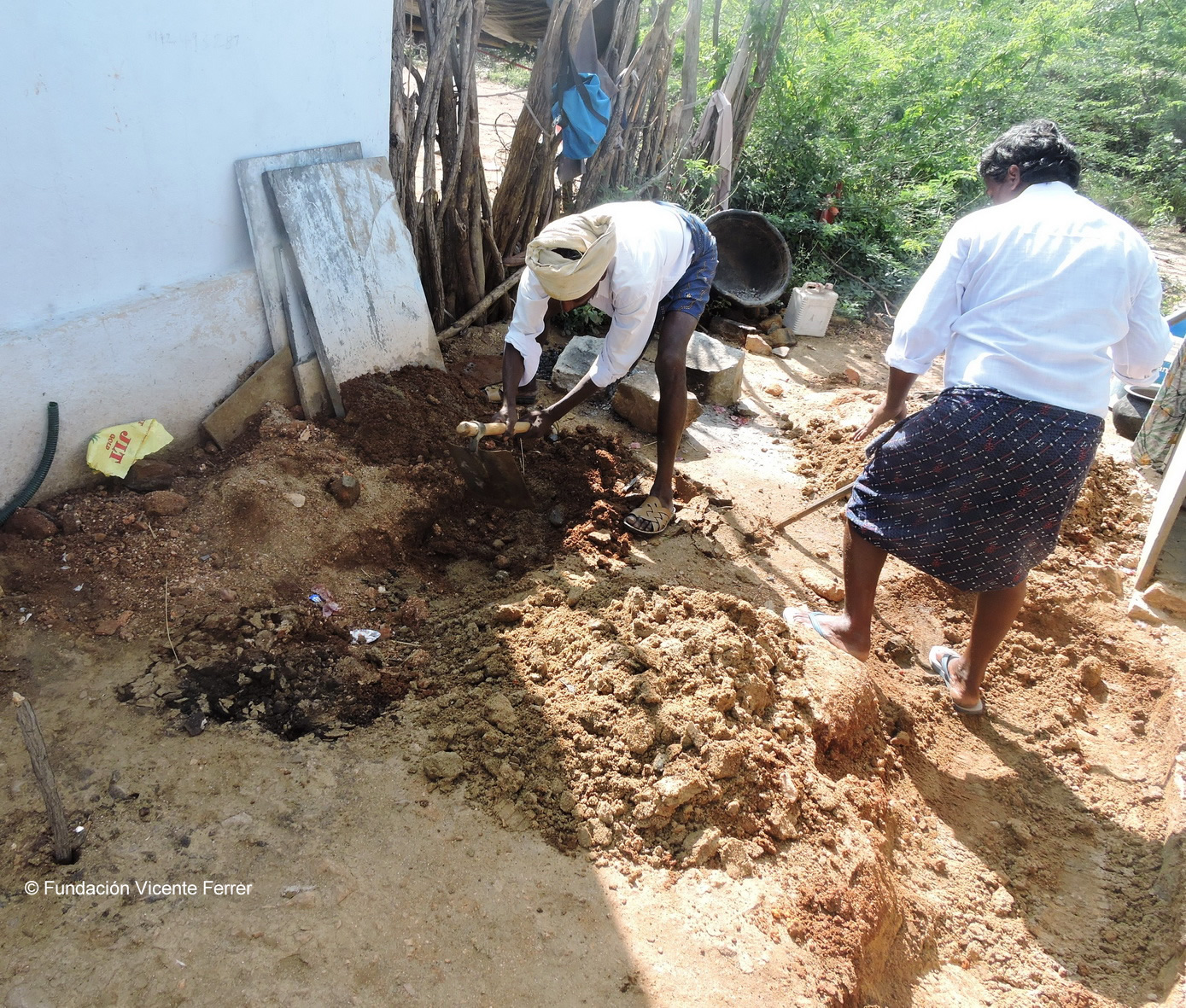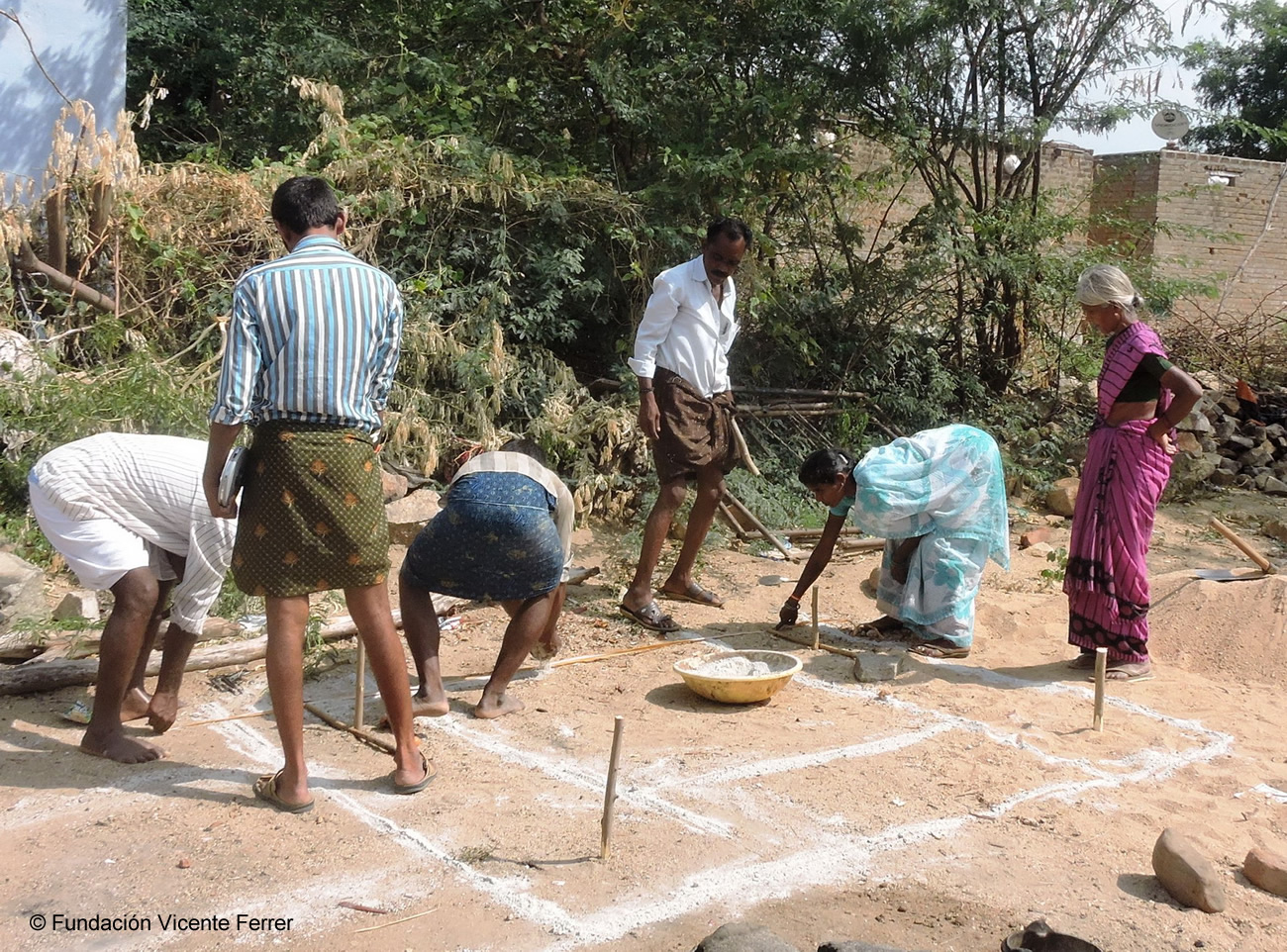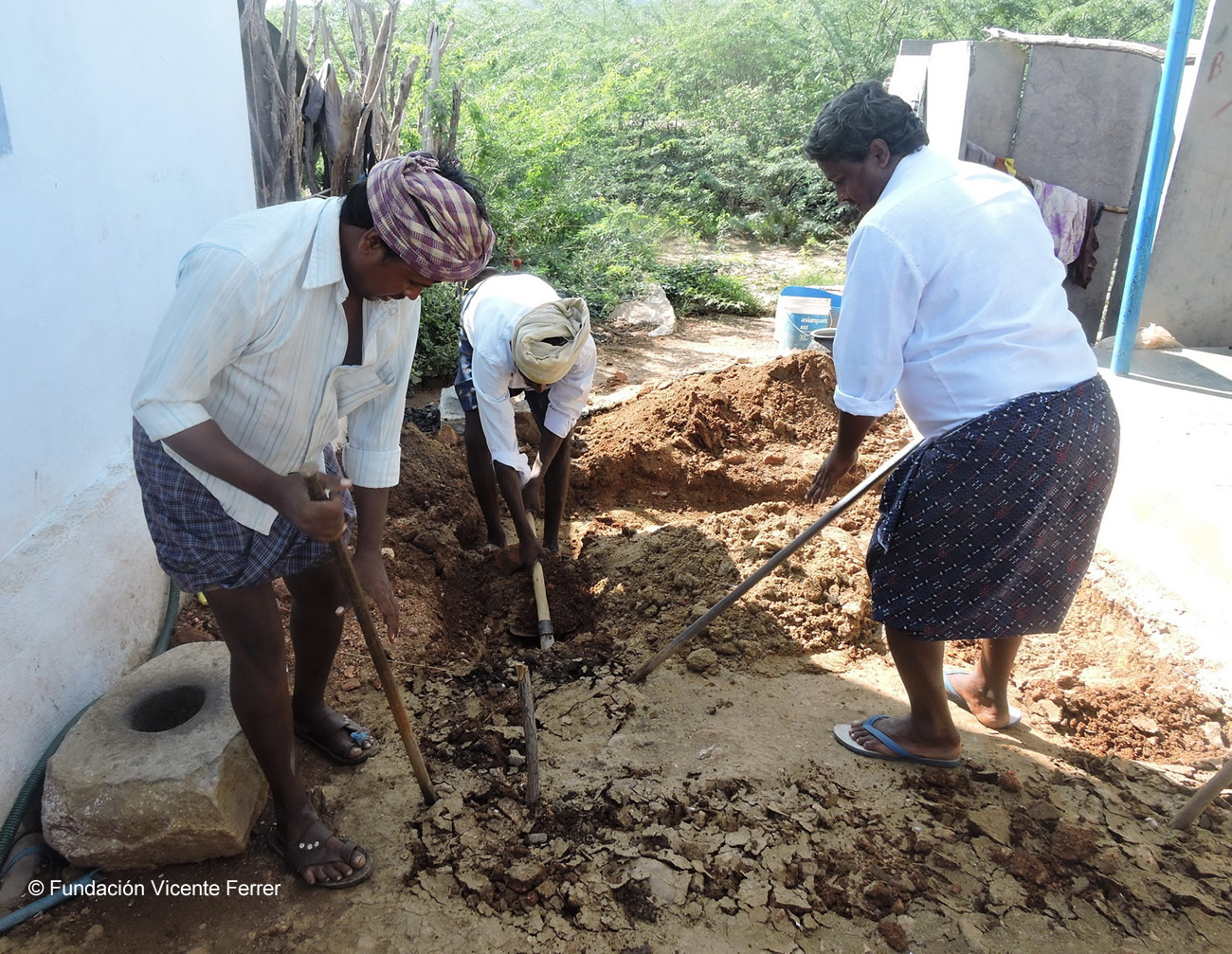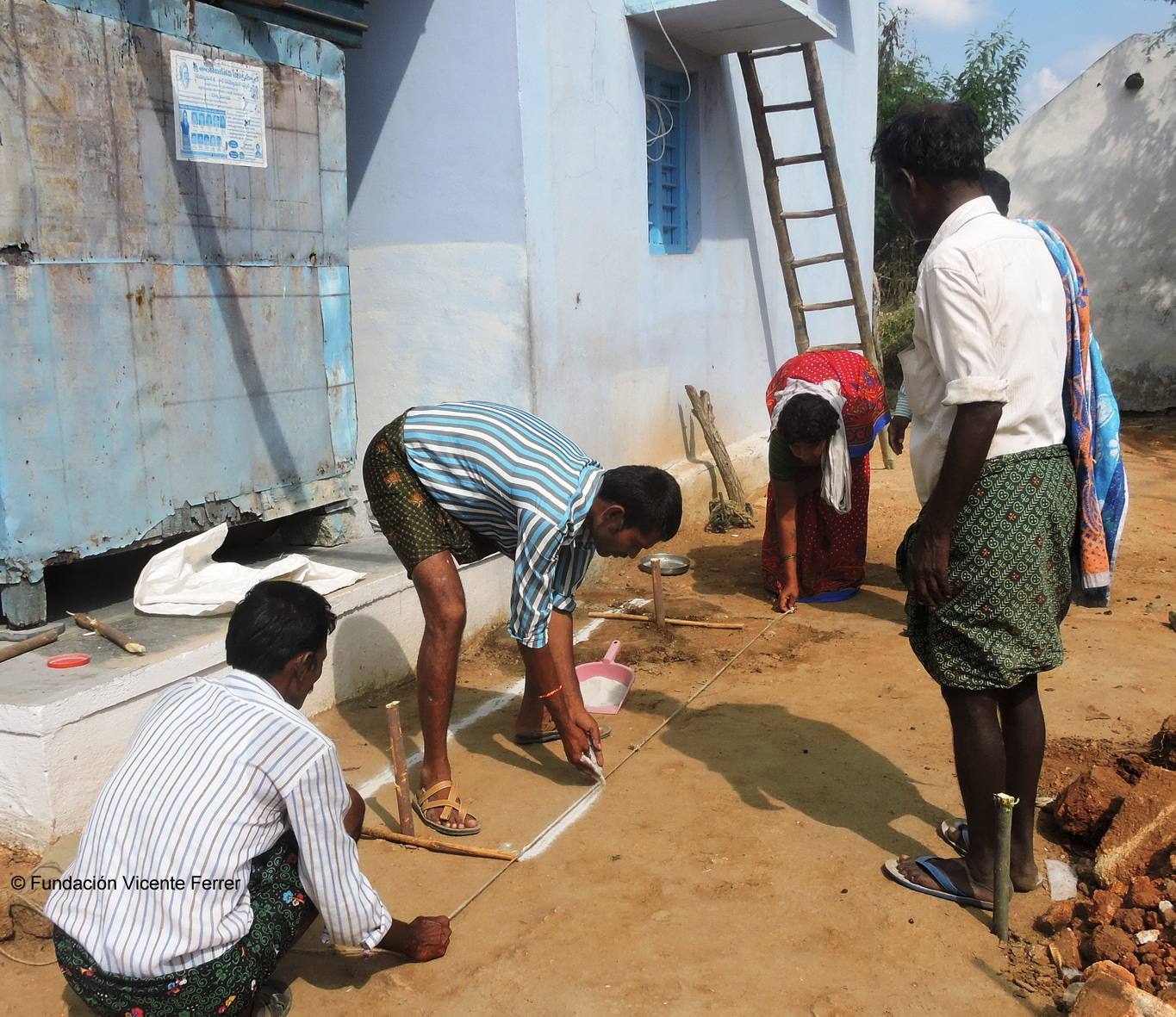Dharmavaram, Mamillapalli and Gandlapenta areas in the Bathalapalli and Kadiri regions, India
In collaboration with

October 2016 – October 2017
We helped build 44,000 toilets for 75 families in Namala, Thumcherla and Kondalavandlapalli villages, which constitute the necessary means to develop good hygiene and sanitation practices.
Objectives
- Promote the right to an adequate standard of living for the most disadvantaged rural population by improving their safety, health and environment.
- Provide 75 families with sanitation facilities with bathrooms and space for personal hygiene.
- Reduce diseases, as well as the dangers to the population of Andhra Pradesh related to overcrowding and unhealthiness.
Beneficiaries
314 direct

On the ground
Disadvantaged communities suffer from social abandonment and are far from public services, so they are forced to defecate in the open and do not have hygiene facilities.
In India, the disadvantaged communities live in huts far away from the upper castes and isolated from the few public services offered by the government. Their situation within the social structure forces them to be a step behind all other castes, and therefore they usually live beside the roads, in very poor conditions and without sanitary services.
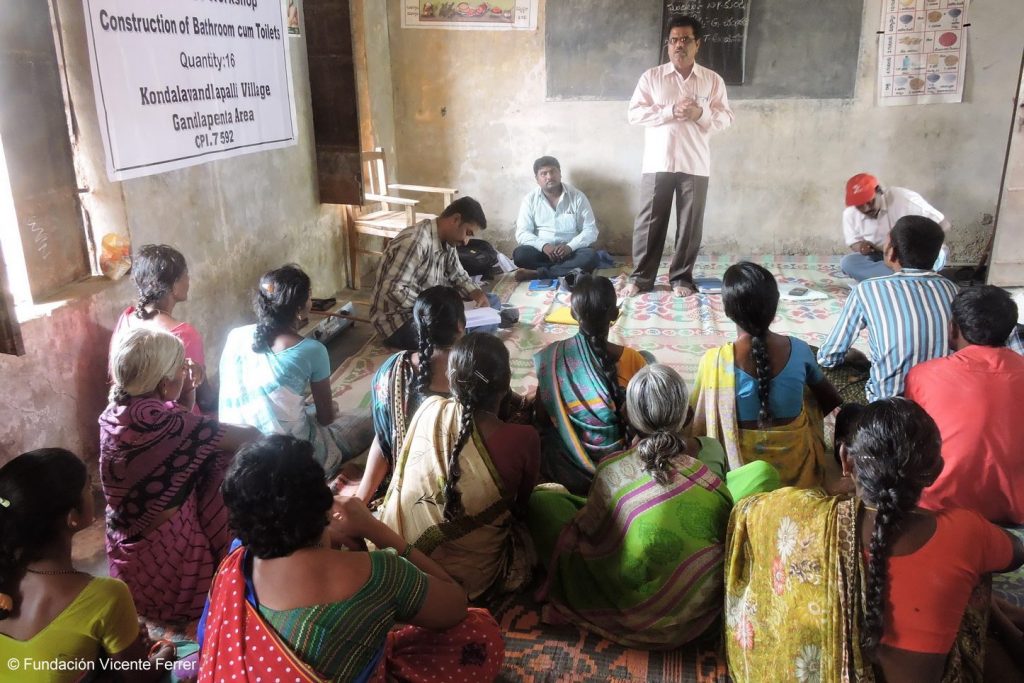
In this context, nearly 600 million Indian people are forced to defecate in the open, as there is no latrine within their reach. The consequences for public health are disastrous, especially for the most vulnerable groups of population: women, children and disabled people.
In order to end this practice, the Indian government launched the campaign “Clean India Mission” in October 2014, naming the Vicente Ferrer Foundation ambassador of the programme
In detail
The base of the project is the construction of 44.000 toilets in more than 400 villages in the Anantapur and Kurnool districts.
This will be a great change of mentality that will contribute to create decent sanitary spaces that preserve the privacy of people and help prevent sexual assaults to women.
The project focuses on the construction of sanitation facilities, with the necessary conditions of healthiness, hygiene and safety for all beneficiaries. The supply of toilets (latrines) and a space for personal hygiene in homes will improve the living conditions of people and the environment.


